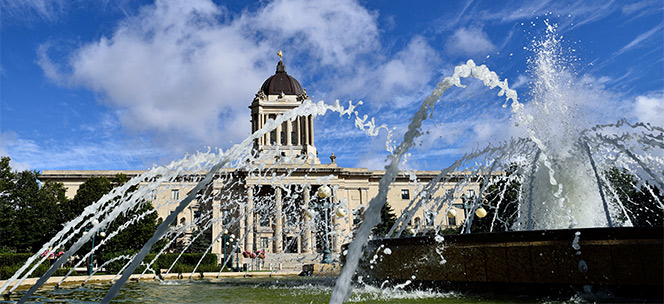Kinew’s hidden tax hike costs you more money every year

Premier Wab Kinew is planning to cash in on inflation and is hoping you won’t notice.
When Manitoba taxpayers get a cost-of-living pay raise, they have more money on paper, but they can’t actually afford to buy anything extra because the prices of everything else jumped up too.
To combat this, almost all provincial governments and the feds, adjust income tax brackets with inflation to make sure taxpayers aren’t getting bumped into higher tax brackets when they aren’t truly making any more money.
But not in Manitoba.
Starting this year, the Manitoba government is scrapping this inflation safety valve for taxpayers.
Kinew’s team will stop linking income tax brackets to inflation.
That means inflation can automatically bump taxpayers into a higher tax bracket and raise their taxes.
This sneaky tax hike is called bracket creep.
It’s a tax hike that doesn’t need a vote in the legislature by elected politicians. By not indexing tax brackets, the provincial government will take more money from taxpayers’ wallets every year, without having the courage to stand up and vote for it.
The hike even started off in a sneaky way. Bringing back bracket creep was not mentioned in the government’s budget speech.
That’s a major step backwards for taxpayers and for transparency, because almost every other province has figured out that bracket creep is a sneaky underhanded way for the government to take more money from taxpayers.
Kinew’s bracket creep tax hike will cost Manitobans $82 million this year, but it’s only going to get more expensive.
That’s because the cost of bracket creep compounds every year.
Before finally getting rid of bracket creep in 2024, Nova Scotia had not indexed it’s tax brackets since 2000. A taxpayer who made $40,000 in 2000, and only got cost-of-living raises since then, paid about $1,300 more in taxes in 2023 because of bracket creep. But that’s only part of the story because that same taxpayer paid more in taxes because of bracket creep every single year in between.
Before bringing it back this year, Manitoba originally got rid of bracket creep in 2017. Saskatchewan got rid of it in 2021. Nova Scotia got rid of it in 2024 and Prince Edward Island adjusted tax brackets the last two years to compensate for inflation. Only Ontario still has some form of bracket creep, but it only applies to high-income earners.
On bracket creep, Manitoba stands alone.
The Manitoba NDP campaigned on offering “a broad middle-class tax cut by indexing tax brackets” during the election. Part of that promise was implementing the previous government’s tax cuts. But it’s still a slap in the face to taxpayers to hike taxes by not indexing tax brackets when the government promised to do the exact opposite.
One of the themes of the government’s budget was “lowering costs for Manitobans.”
Manitoba was the only provincial government to hike taxes in its budget this year. The government introduced some other tax cuts along with bracket creep, but in total those cuts will save taxpayers less than bracket creep will cost them.
Other provinces are instead providing real tax relief for their residents. The government of Ontario made it’s 5.7 cents per litre gas tax cut permanent. Alberta brought in an income tax cut that will save a two-person working family about $1,500 per year. And Nova Scotia cut its sales tax by one percentage point.
Kinew should be cutting taxes to make life more affordable, but if he wants to raise taxes on Manitobans, he should have the courage to stand up and do it openly instead of sneaking through a tax hike like bracket creep.
That way taxpayers can rightly call out the government for hiking taxes and remember which politicians voted to make their lives more expensive.
Taxpayers shouldn’t be punished for receiving a cost-of-living pay raise. Kinew needs to end bracket creep. It makes life more expensive one of the least transparent ways possible.
Gage Haubrich is the Prairie Director for the Canadian Taxpayers Federation